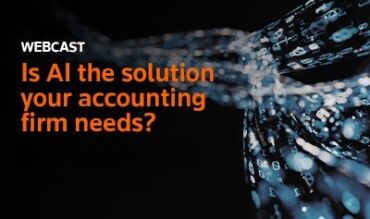The foundation of a successful tax practice rests on the technical knowledge of your people. While you can create a modern firm with automated processes and expansive service offerings, your clients won’t keep coming back if your team isn’t up to speed with the most recent tax law changes.
Jump to:
| How can accountants keep up with tax law changes? |
| Advisory opportunity with tax law changes |
| Protecting your firm’s reputation |
| Accounting research technology |
The foundation of a successful tax practice rests on the technical knowledge of your people. While you can create a modern firm with automated processes and expansive service offerings, your clients won’t keep coming back if your team isn’t up to speed with the most recent tax law changes.
But of course, staying informed is easier said than done. Tax rules are revised constantly, and changes aren’t always easy to interpret. Now more than ever, your tax and accounting staff require a robust system or framework that leverages technology so that they can keep up with regulatory developments in a timely manner.
How can accountants keep up with tax law changes?
You can help team members keep their tax knowledge current by providing different learning opportunities:
-
- Events: Industry-leading conferences and seminars, including Synergy, offer an interactive way for staff to get an update on the most recent tax law changes and current issues affecting today’s businesses.
- Networking: You can run workshops for tax teams to share their knowledge and experience of a particular tax area.
- Subscriptions: Reading newsletters from professional associations and LinkedIn posts from industry leaders allows staff to learn about the practical impacts of regulatory changes.
- Webcasts and Events: You can browse through our recent events, including upcoming and on-demand events, tradeshows, and Synergy conferences—all hosted by leading tax, audit, and accounting experts.
Advisory opportunity with tax law changes
Top CPA firms have long understood the need to elevate their staff from being tax preparers to tax advisors. While a preparer focuses on churning out tax returns, an advisor tries to evaluate the broader implications of tax code changes by considering:
-
- What are the recent tax law changes my clients should know about?
- What are their commercial impacts?
- When do tax law changes take effect?
- Should clients conduct their business differently when new rules come in?
- Are there tax saving or tax planning opportunities, or other ways I can add value?
Tax advisors can make the most of their up-to-date knowledge by seizing opportunities to optimize their clients’ tax strategies. They can offer support when clients struggle with complex changes, and in doing so, they earn credibility, client trust, and additional revenue streams for their firms.
Protecting your firm’s reputation
Keeping your staff highly skilled in the current tax landscape isn’t just about demonstrating value over do-it-yourself compliance software and online preparation platforms. The growing public expectation for businesses to pay their “fair share” of tax, along with economic pressure from an uncertain economic environment, means finance leaders need professional advisor support to adapt their tax strategy in anticipation of potential tax hikes in the future.
At the same time, tax authorities are now drawing on sophisticated technology to conduct forensic reviews, leading to a higher number of business tax audits. Without a solid understanding of the current law, there is a strong risk of providing incorrect or poor advice. Errors could bring financial harm to your clients, particularly if they’re found during an audit, and your firm could be legally liable for the fallout. With your firm’s reputation on the line, it’s crucial to take every possible step to ensure your staff is well-positioned to deliver the best and most accurate guidance.
Accounting research technology: the helping hand you need for quick and accurate answers
When your clients have questions, they want immediate answers they can trust. And, if you can’t provide them, clients will go elsewhere to find them. The simple truth is that nobody has every answer. It takes time to do the research, but client demands continue to rise with regard to the speed and accuracy they require from their firms.
The good news is that technology is readily available to help firms quickly get the information they need so that they can reply confidently to any client query.
Whether the client is a multinational group looking for the latest developments in transfer pricing rules, or a manufacturer trying to claim R&D tax relief under new amortization requirements, there are solutions on the market that incorporate even the most recent tax law updates. Today’s technology allows you to provide the best possible assistance and service to your clients.
Having access to a comprehensive research tool that keeps staff up to date with tax law changes can help your team work more confidently and find the correct answers for clients faster.
Build your firm’s reputation as a tax expert and industry leader. Start your free trial today and learn more about how Checkpoint Edge can help your firm stay up to date on changes to the law and enhance your firm’s service to its clients.
For more information on advisory services, we invite readers to:
Report QuizThomson Reuters Advisory Report Quiz
|
|
You may also like this whitepaper:
4 keys to building advisory relationships
Odds are you’re having advisory conversations with your clients, drawing on your years of industry experience to answer those quick questions day in and day out, and you are providing advice. Maybe that’s the actual “cost of doing business,” but perhaps it’s something you’d like to change if you could. The fact is, many firms have successfully positioned those off-the-books activities as a part of their paid services. The results? Stronger client relationships and increased revenue for the practice.













